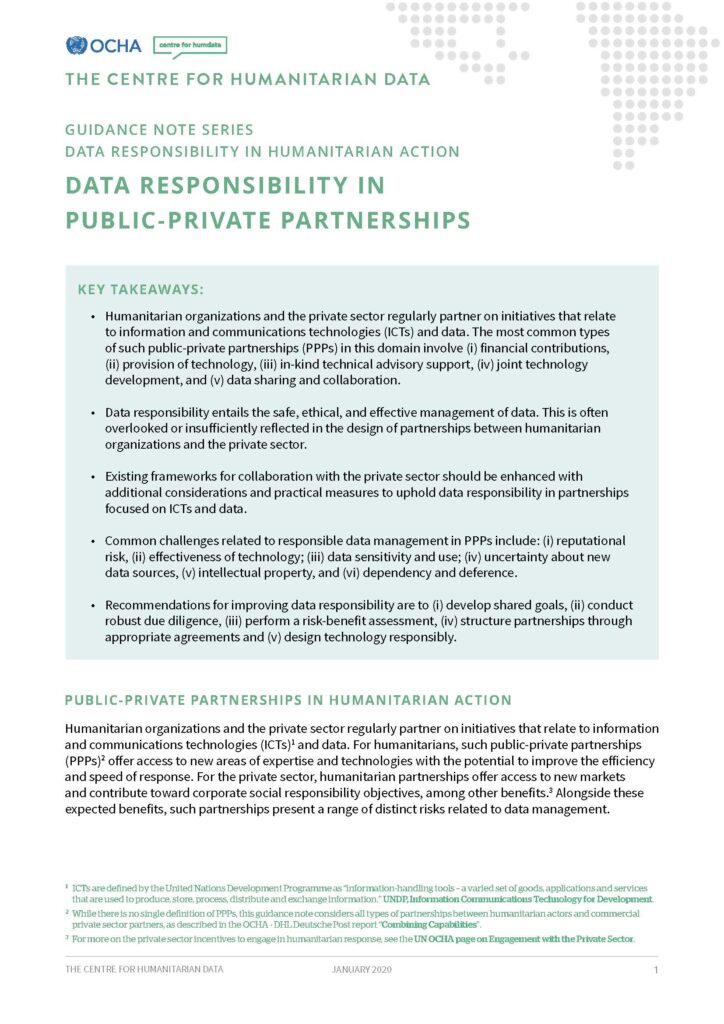Share
This Guidance Note is also available in Arabic, French and Spanish.
Humanitarian organisations regularly partner with the private sector on data and technology-related initiatives. Such public-private partnerships offer humanitarians access to areas of expertise that have the potential to improve response efficiency. For the private sector, humanitarian partnerships offer access to new markets and may contribute toward corporate social responsibility objectives, among other benefits. Alongside these expected benefits, however, these partnerships present a range of risks related to data management.
The Centre has developed a Guidance Note on Data Responsibility in Public-Private Partnerships to support humanitarians and their private-sector counterparts in designing responsible partnerships. The Centre developed this note in collaboration with the Connecting Business Initiative and the World Economic Forum.
The Centre recommends five steps for improving data responsibility in public-private partnerships:
- Develop shared goals
- Conduct robust due diligence
- Conduct a risk-benefit assessment
- Structure partnerships through appropriate agreements
- Design technology responsibly
The note is the third in a series of eight guidance notes on Data Responsibility in Humanitarian Action, which are being published over the course of 2019 and 2020. Through the series, the Centre aims to provide additional guidance on specific issues, processes and tools for data responsibility in practice to complement the OCHA Data Responsibility Guidelines. This series is made possible with the generous support of the Directorate-General for European Civil Protection and Humanitarian Aid Operations (DG ECHO).
Read the other guidance notes in this series on Statistical Disclosure Control, Data Incident Management and Humanitarian Data Ethics here.
For more on managing sensitive humanitarian data, visit the Data Responsibility page on the Centre’s website or contact our team at centrehumdata@un.org.
